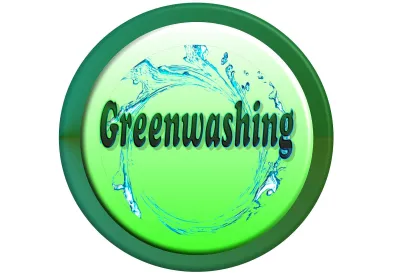In January 2022, we wrote regarding the Federal Trade Commission’s (FTC’s) intent to update its “Green Guides“, which “…set forth the Federal Trade Commission’s current views about environmental claims. The guides help marketers [and companies] avoid making environmental marketing claims that are unfair or deceptive….” Now, the U.S. Environmental Protection Agency (EPA) is weighing in on the topic by urging the FTC to update the Green Guides, as the EPA is concerned about various environmental representations misleading the public, especially with respect to PFAS issues. At the same time, the E.U. recently enacted its own greenwashing legislation, specifically aimed at preventing companies from touting greenhouse gas emissions practices if carbon offset programs are the sole reason for a company being able to make the claim.
Both the EU legislation and any updates to the Green Guides would have significant impacts on how companies promote and market their products, and non-compliance can have significant financial consequences for a company.
FTC Green Guides
The FTC’s Green Guides apply to claims made about the environmental attributes of a product, package or service in connection with the marketing, offering for sale, or sale of such item or service to individuals. The Green Guides make clear that “it is deceptive to misrepresent, directly or by implication, that a product, package, or service offers a general environmental benefit.” The Green Guides also make clear that “unqualified general environmental benefit claims are difficult to interpret and likely convey a wide range of meanings. In many cases, such claims likely convey that the product, package, or service has specific and far-reaching environmental benefits and may convey that the item or service has no negative environmental impact. Because it is highly unlikely that marketers can substantiate all reasonable interpretations of these claims, marketers should not make unqualified general environmental benefit claims.”
It is within this framework that the Green Guides regulate environmentally-related marketing statements made pertaining to non-toxicity, biodegradability, compostability, degradability, ozone-friendliness, carbon offsets, recycled content, and renewable energy, to name a few.
Violating the Green Guides can subject companies to penalties brought under the Federal Trade Commission Act (FTC Act). While the penalties depend on the type of violation and the section of the FTC Act under which enforcement action is brought, companies can be subject to penalties of up to $43,792 per violation. Depending on the extent of the FTC’s interpretation and pursuit of what constitutes a “violation”, these penalties can be substantial.
Green Guides Impacts On ESG, PFAS and Emerging Chemicals
Given the broad range of environmentally-related issues that the FTC regulates under the Green Guides currently, it should be of little surprise to companies of all types that the FTC can and likely will use the Green Guides regulations to pursue violations that companies make in an attempt to present themselves as ESG-friendly. This, coupled with our prediction that the Securities and Exchange Commission (SEC) will step up investigation and enforcement action related to ESG, adds another complex layer of ESG risk to companies and investment firms trying to market themselves to consumers and investors as ESG-friendly.
PFAS is an issue that may be the subject of the FTC’s enforcement action under the Green Guides, and it is the subject of PFAS that the EPA is especially concerned about. Specifically, the Green Guides state that “a non-toxic claim likely conveys that a product, package, or service is non-toxic both for humans and for the environment generally. Therefore, marketers making non-toxic claims should have competent and reliable scientific evidence that the product, package, or service is non-toxic for humans and for the environment or should clearly and prominently qualify their claims to avoid deception.” As PFAS issues steadily climb to the forefront of consumers’ minds as a consumer good ingredient of concern, companies have already begun to market their products as “non-toxic” perhaps not realizing that the products contain PFAS. Or, companies often market products as “PFAS free” (a broad statement that could lead a consumer to conclude that the product contains none of the over 12,000 PFAS chemicals) when the intent is to perhaps only convey that the product is free, for example, of one of the two legacy PFAS of concern – PFOA and PFOS.
Nevertheless, despite corporate good intentions, companies may face FTC enforcement action over these statements given growing scientific studies and EPA statements that certain PFAS pose risks to human health and the environment. Overly broad ESG-friendly statements related to PFAS could therefore be interpreted as deceptive to consumers and subject to enforcement action by the FTC. In fact, such statements related to “environmentally friendly” products have already been the subject of significant lawsuits against cosmetics industry companies for allegations of greenwashing PFAS statements.
The EPA recently submitted comments to the FTC’s proposal to update the Green Guides by supporting the FTC’s plan, while specifically citing PFAS as a major reason why the Green Guides need to be updated. “[Greenwashing] claims have also become broad in scope, spanning from general sustainability to claims of being free from chemicals of concern like PFAS, and therefore need to be addressed in a future rulemaking….[C]onsumer confusion about what is recyclable and/or compostable are complex and would benefit from greater standardization at the national level.” The EPA also expressed particular concern over companies touting products as “compostable” or “recyclable”, yet the products may still contain PFAS. The EPA urged the FTC that for products making such claims, it must only be allowed if the products do not release PFAS into the environment.
EU’s Greenwashing Legislation
Meanwhile, on the other side of the Atlantic, the EU’s Parliament approved proposed legislation banning the use of general environmental claims like “environmentally friendly”, “natural”, “biodegradable”, “climate neutral” or “eco” if these do not come with detailed evidence. The legislation also aims to ban environmental claims that are based solely on carbon offsetting schemes. Other misleading practices such as making claims about the whole product if the claim is true only for one part of it, or saying that a product will last a certain amount of time or can be used at a certain level of intensity if that is not true, will also be forbidden.
Negotiations between the Parliament and EU member states will commence soon to finalize the language of the legislation.
Conclusion
While there are numerous avenues to examine to ensure that ESG principles are being upheld and accurately conveyed to the public, the underlying compliance program for minimizing greenwashing allegation risks is absolutely critical for all players putting forth ESG-related statements. These compliance checks should not merely be one-time pre-issuance programs; rather, they should be ongoing and constant to ensure that with ever-evolving corporate practices, a focused interest by the SEC on ESG, a possible interest by the FTC in pursuing violations under the Green Guides, and increasing attention by the legal world on greenwashing claims, all statement put forth are truly “ESG friendly” and not misleading in any way. ESG, PFAS and emerging chemicals will certainly be at the forefront of legal, regulatory and legislative action – so, too, should they be at the forefront of corporate compliance considerations.




 />i
/>i
